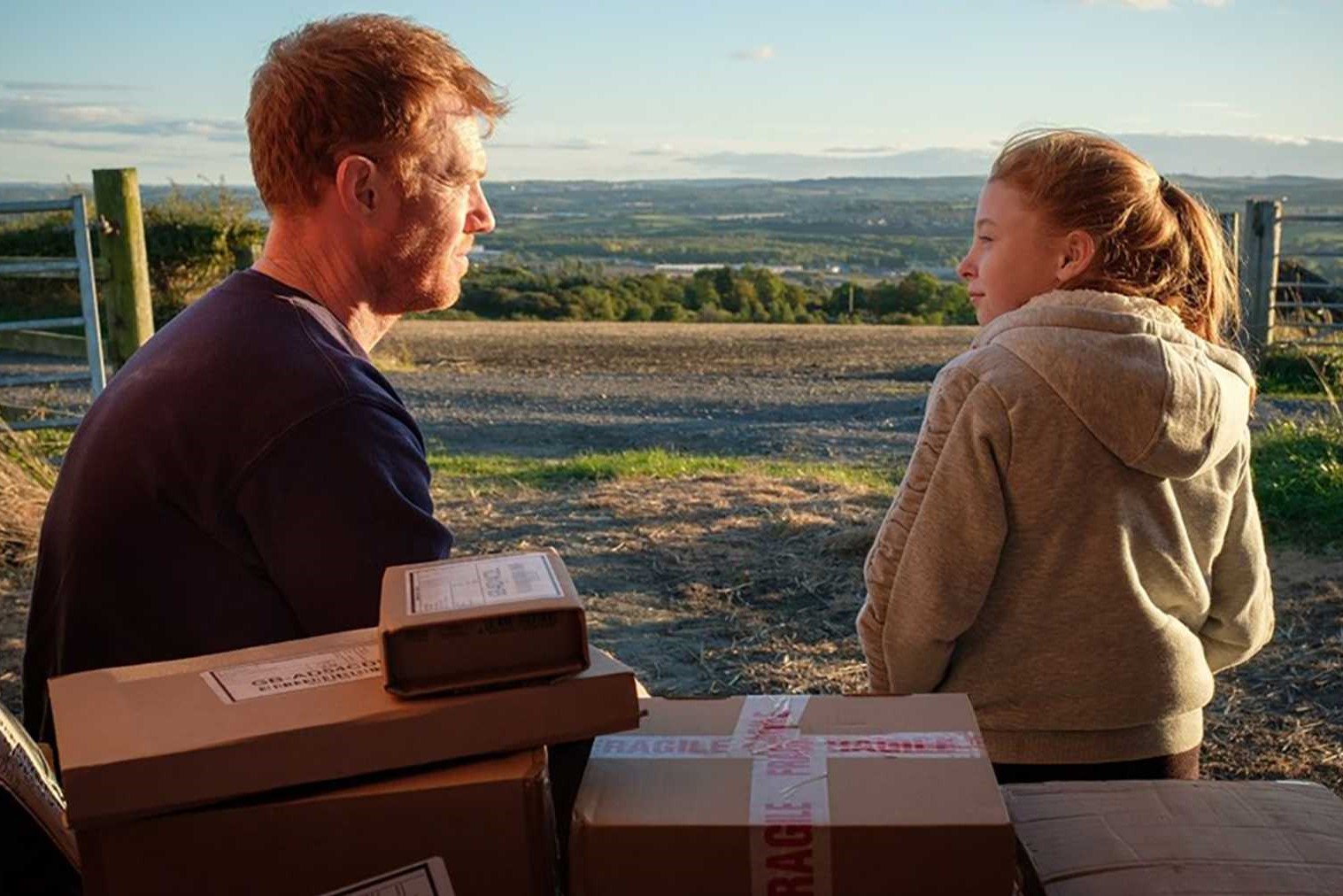This election year Ken Loach has set his sights upon the gig economy and has drawn inspiration from several painful episodes of zero-hours hell. Sorry We Missed You focuses upon a delivery (loosely based on DPD) company model of zero-hours self-employed drivers, being paid per parcel and expected to provide replacement drivers in the event of a day off.
As with most of his recent projects Loach fills out the family with newcomers and again his vigorous casting process has reaped dramatic rewards. Ricky, portrayed by Kris Hitchen, is the archetypal dad character: flawed and emotional but eliciting sympathy for his lack of culpability despite some moments of stupidity. His familiar frustration and bewilderment at his predicament is complemented by Debbie Honeywood as his carer wife. Their son Seb, played by Rhys Stone, is a wannabe Banksy providing a blankness that can be interpreted alternately as lacking emotional depth or infuriatingly accurate.
What follows is a realistic depiction of a descent into debt, depression and tragedy punctuated with contributions from Ross Stewart, as Ricky’s boss Maloney, who explains the rules of the game. As Ricky encounters familial difficulties it is Mahoney who explains the system of sanctions, fines that exemplify the weaponization of labour.
Unlike I, Daniel Blake this film focuses upon the employed and those supposedly in better circumstances having moved from the rung of the unemployed to the step up of precarious work. Laverty’s script successfully explodes the Cameron myth that the welfare system was ‘making work pay’. There are thousands of people gainfully employed but due to the punitive model they are working within their career aspirations are reduced to the level of mere survival.
Loach remains one of the few voices for the working poor in UK cinema in an era where the notion of a working class is supplanted by neoliberal notions of individuality. Streamlining and refining the structure of his films, by jettisoning any overtly visual storytelling and allowing his characters to explain their thoughts and feelings opposed to alluding to them is a sort of signature for Loach’s output in the past twenty years. Cinematographer Robbie Ryan captures the council house interiors and unemotional functional warehouse spaces with a clarity of message.
Critics will highlight that Sorry We Missed You is designed to appeal to academics and liberals who are unaware of the reality of dead-end jobs in distribution and retail. There is an inevitable voyeuristic quality when watching these circumstances unfold but his decades of experience with workers’ rights ensures that despite accusations to the contrary, he can align and adjust his critique to the globalised workplace.
At Filmhouse Edinburgh until Thu 28 Nov 2019
